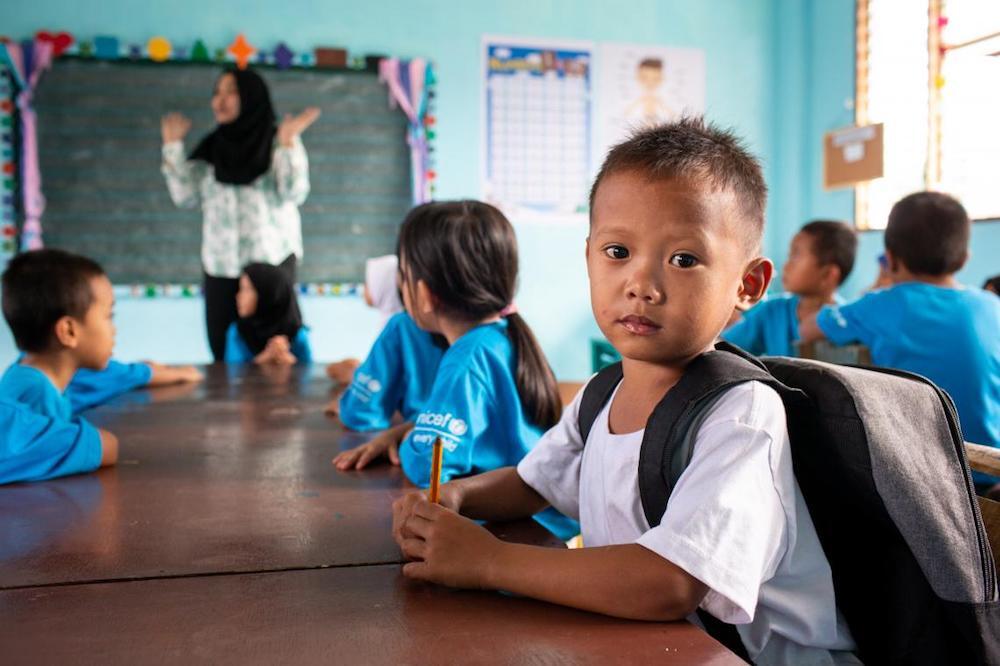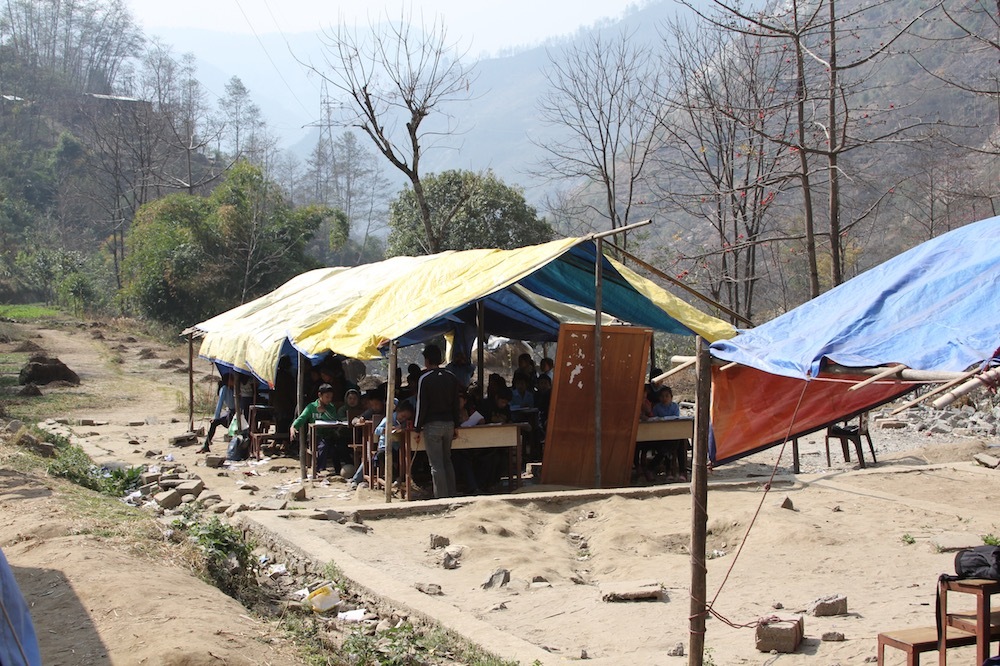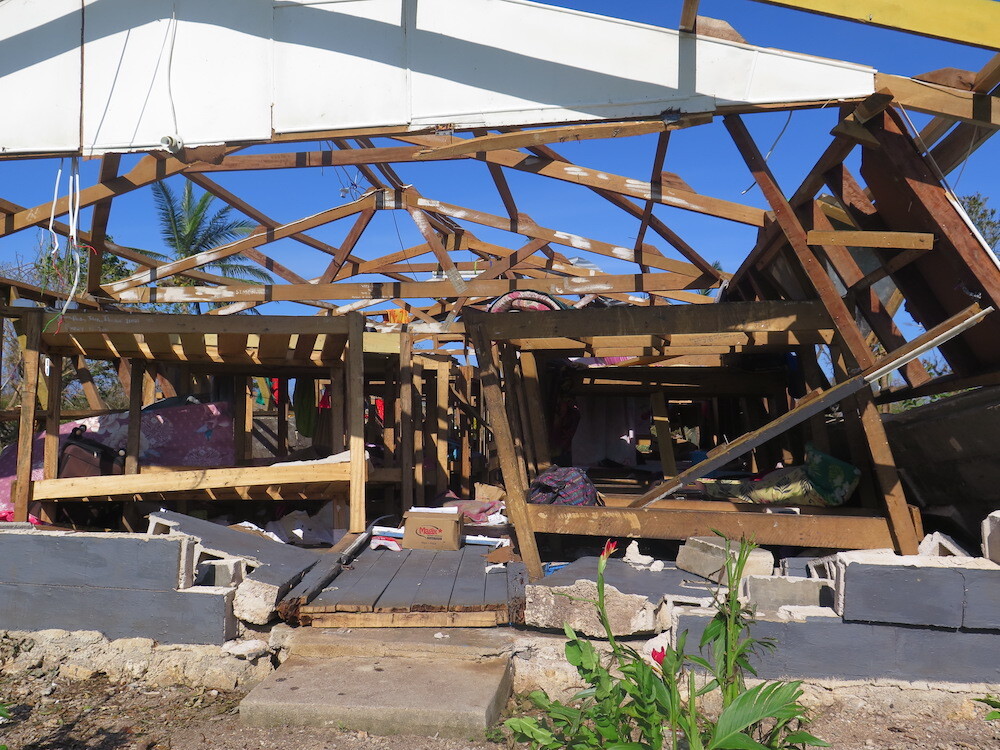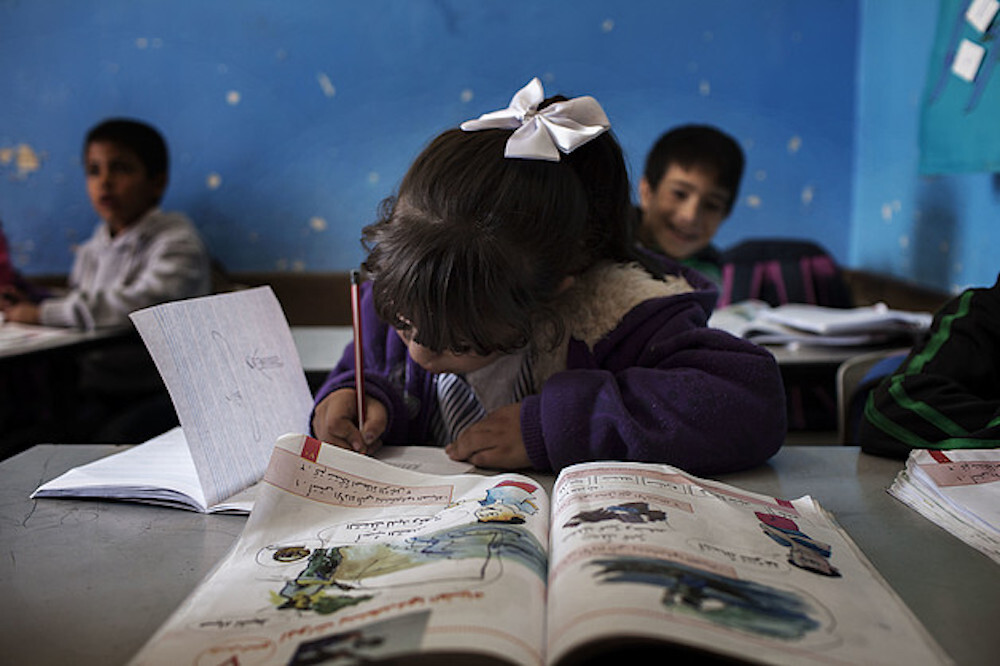Five things you need to know this week about global education

More countries announce plans to reopen schools - but in other nations urgent action is needed to help children missing out on vital school meals.
Governments reveal plans to reopen schools after coronavirus shutdowns
There has been a flurry of announcements from governments this week about when schools will be able to reopen after being closed due to the coronavirus pandemic.
The United Nations and the World Bank also issued new guidelines on the safe reopening of schools – as the number of learners affected by classroom closures fell from a peak of more than 1.5 billion to under 1.3 billion.
“Once there is a green light on the health front, a whole set of measures will need to be in place to ensure that no student is left behind,” said UNESCO Director-General Audrey Azoulay. “These guidelines provide all-round guidance for governments and partners to facilitate the reopening of schools for students, teachers and families.”
Last week Their News told how Danish children became the first in Europe to return to school after a global shutdown that has disrupted education for 1.5 billion young people. This week’s moves include…
ISRAEL. Will begin a staggered reopening of schools next week if the latest health data does not warn of heightened coronavirus risk, said Prime Minister Benjamin Netanyahu’s office. Children in the first three years of primary school will resume studies on Sunday in reduced class sizes of no more than 15.
CHINA. Wuhan, the city where the outbreak began late last year, is set to reopen high schools on May 6. Schools in other parts of China have already reopened. POLAND. Prime Minister Mateusz Morawiecki said the country is considering reopening preschools on May 6.
Nearly 1.3 billion.
That’s the number of children & youth out of school due to #COVID19 closures.
With @UNICEF @WFP & @WorldBank we are scaling up efforts, providing new guidance on the safe reopening of schools.
Full statement here: https://t.co/X2IdaRAGwm pic.twitter.com/iqZCuBjQzG
— UNESCO ????️ #Education #Sciences #Culture ???????????? (@UNESCO) April 30, 2020
GREECE. Schools will open gradually, starting on May 11. Theirworld this week published a major report which revealed that vital education services for thousands of refugee children on the Greek islands will end in June without urgent action from the international community,
FRANCE. Kindergartens and primaries will reopen nationwide from May 11 but on a voluntary basis. Class sizes will be kept to 15 and distance learning will remain free for those students who stay home. From May 18, secondary schools will gradually reopen classes.
FINLAND. Schools and daycare centres will open from May 14 – but only for two weeks until the school holidays start. AUSTRIA. Most pupils will go back to school on May 18, with classes split in two groups who will each attend lessons half the week to ensure their desks are far enough apart.
SLOVENIA. Schools and kindergartens will gradually start reopening from May 18. UNITED STATES. California’s health department said some schools can gradually reopen once the state improves coronavirus testing and contact tracing. ITALY. Schools will reopen in September, said Prime Minister Giuseppe Conte.
Meanwhile, some other countries are extending their education lockdowns.
TURKEY. The closure of schools will continue until the end of May. HUNGARY. Also announced yesterday schools will be shut until the end of May. TAJIKISTAN. Announced it is closing schools for two weeks to prevent the spread of the disease.
Action needed now to cover for lost school meals
Last week, WFP's Executive Director warned the @UN Security Council about the impact of #COVID19 school closures on the most vulnerable children.
Now @WFPChief and @unicefchief are joining forces to mobilize support for children in fragile countries: https://t.co/jAZd3mA9ne pic.twitter.com/FZ2IZdvpF2
— World Food Programme (@WFP) April 29, 2020
Governments must prevent devastating nutrition and health consequences for the 370 million children missing out on school meals amid school closures because of coronavirus, the United Nations has warned.
The World Food Programme and UNICEF are working with governments to support children who are out of school during the crisis. In 68 countries, governments and WFP are providing children with take-home rations, vouchers or cash transfers as an alternative to school meals.
“For millions of children around the world, the meal they get at school is the only meal they get in a day. Without it, they go hungry, they risk falling sick, dropping out of school and losing their best chance of escaping poverty,” said WFP Executive Director David Beasley.
WFP and UNICEF will also assist governments in the coming months to ensure that – when schools reopen – returning children will benefit from school meals and health and nutrition programmes. The agencies are working together to track children in need of school meals through an online School Meals map.
Five years on, earthquake-damaged schools not rebuilt

Thousands of schools have been repaired but many students are still in temporary classrooms (Theirworld / Claire Wilkinson)
After a devastating earthquake hit Nepal in 2015, the government promised to rebuild all 7,553 badly-damaged schools by last year. But five years on from the April 25 disaster, only 5,598 have been completed fully or partially.
That leaves 2,015 schools still waiting to be reconstructed, said a report by the country’s National Reconstruction Authority.
A body formed to reconstruct school buildings said additional government funds had not yet been issued. “If the needed budget is made available, we expect the reconstruction project of school buildings to be completed in next two years,” Dilip Shekhar Shrestha, deputy chief at the unit Central Level Project Implementation Unit (Education), told the Kathmandu Post.
The charity SOS Children’s Villages has helped to renovate nine schools and build three new ones in Nepal. Divya, a 15-year-old student at Shri Surkhe Seconday School said: “The new school building is beautiful. We have nice desks and benches.”
Cyclone destroys schools in South Pacific

(UNICEF Pacific)
This is the devastating damage caused to one school in the Pacific Islands after Tropical Cyclone Harold destroyed education facilities and homes.
The category five cyclone tore through Solomon Islands, Vanuatu, Fiji and Tonga earlier this month, leaving thousands of children and their families needing urgent aid.
In Vanuatu’s Samna Province, 60% of schools were damaged and 90% of the population lost their homes.
At Bombua Junior Secondary School on Espiritu Santo – Vanuatu’s largest island, some teachers’ homes and classrooms were completely destroyed. A teacher’s wife said students wept when they saw what had happened to their their classrooms.
Tear gas attacks on West Bank schools double

Tear gas attacks against students have doubled in one year (UNICEF)
Tear gas attacks against students in and around schools in the West Bank, in the occupied Palestinian territory, have doubled in one year – leaving children stressed, and anxious.
But research by Save the Children also showed that since the start of the coronavirus outbreak and the closure of schools, these attacks have dropped to zero.
The charity spoke to 400 children. Of those, three-quarters reported that their schools have been attacked, rising to 93% of children in Nablus. About 80% of children cited “fear” as the main reason they struggled with their schoolwork.
Farea, 12, from Hebron said: “Soldiers attacked my school three or four times last year. They threw tear gas and shot live ammunition. Some teachers and students couldn’t breathe, the ambulance came and we all went home.”